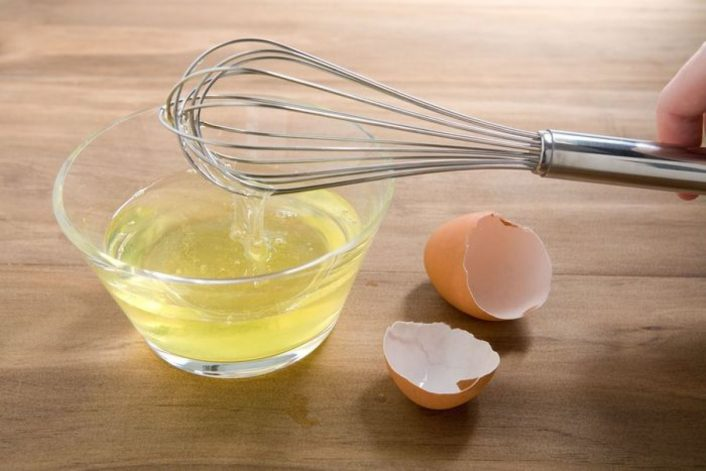Egg whites contain water, protein, trace elements (iron, phosphorus), and B-group vitamins that help tighten the skin, absorb excess oil, and keep the skin clear.

Egg whites are rich in nutrients that boost collagen production for supple skin.
Egg whites are a rich source of nutrients that promote collagen production, resulting in firmer and younger-looking skin. Combining egg whites with honey, turmeric powder, and fresh lemon creates a potent mixture that enhances skin firmness and vitality.
1. Egg White, Olive Oil, and Honey
Honey is packed with vitamins A, C, and E, as well as minerals, which help maintain the skin’s moisture balance. It protects the skin from environmental stressors and nourishes it from within. The combination of egg white, olive oil, and honey creates a powerful face mask that effectively treats acne and fades acne scars.
Take the white of one egg and whisk it until frothy. Add one teaspoon of honey and two drops of olive oil, mixing well. Gently apply the mixture to your face and massage for about five minutes. Leave it on for 20 minutes, then rinse your face with warm water.
2. Egg White, Lemon Juice, and Honey
This face mask helps balance the skin’s moisture levels, fights bacteria, deep cleanses pores, and aids in acne treatment. Take one egg white and add one teaspoon of lemon juice, whisking it together. Then, add two teaspoons of honey and mix well. Gently massage the mixture into your face for five minutes. Relax for 20 minutes, then rinse your face with warm water.

Egg whites are a natural beauty ally.
3. Egg White and Turmeric Powder
This face mask is effective in reducing acne and fading acne scars. It suits various skin types. Take one egg white and whisk it until frothy. Add three teaspoons of turmeric powder and mix well. Evenly apply the mixture to your face and relax for 20 minutes. Rinse your face with warm water.
Notes:
– Always choose fresh, high-quality eggs.
– It is recommended to apply these face masks in the evening, after your regular skincare routine.
– Do not use the masks if you have active acne, pustules, severely damaged skin, or open wounds.
– Discontinue use if your skin shows signs of irritation.
– Limit your use to a maximum of three times per week.
– Egg white masks tend to dry quickly, so you may need to reapply two to three times.
While the egg white face masks and natural ingredients mentioned above offer a basic approach to skincare, they are a traditional, natural beauty treatment that requires consistent application to achieve desirable results.
































